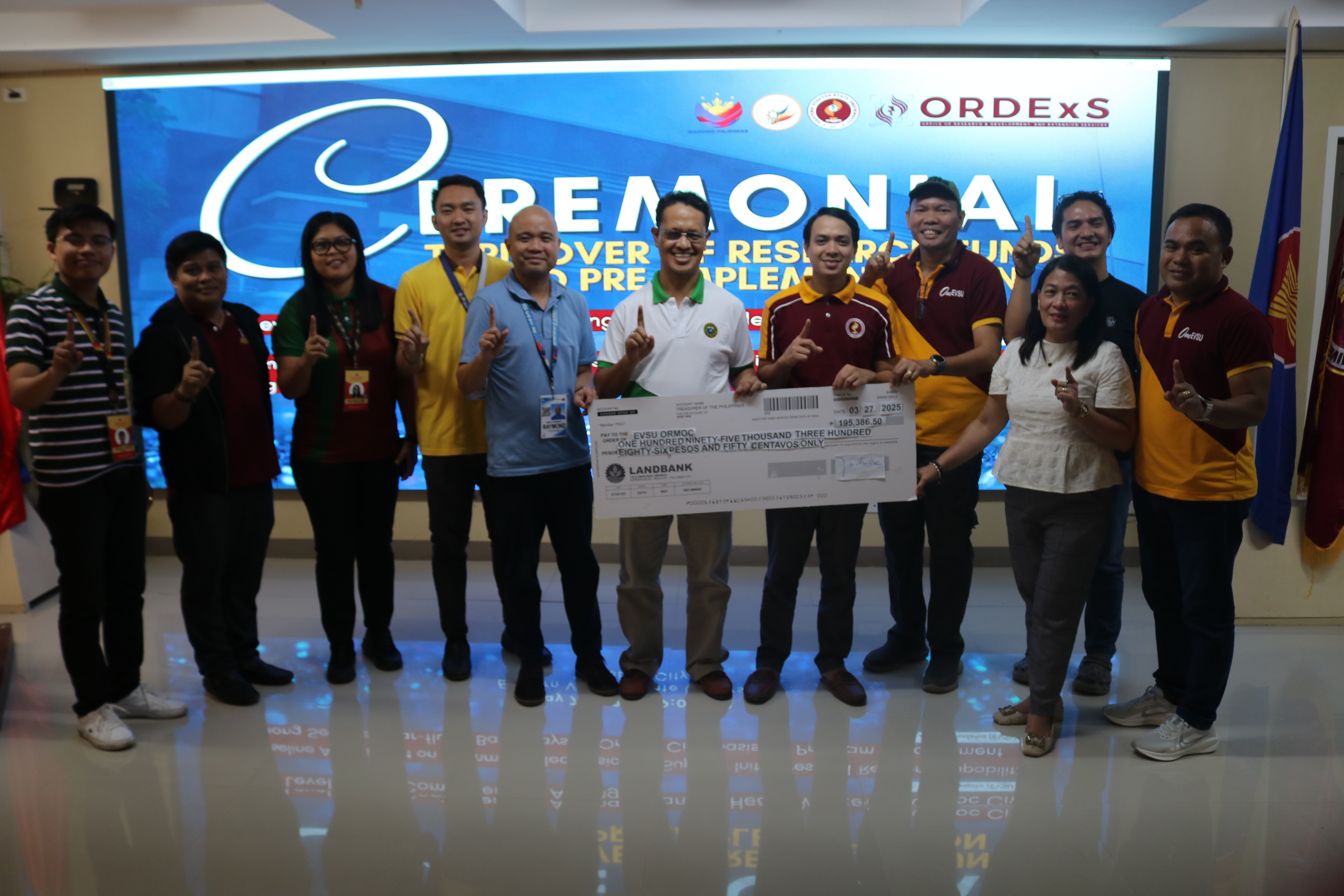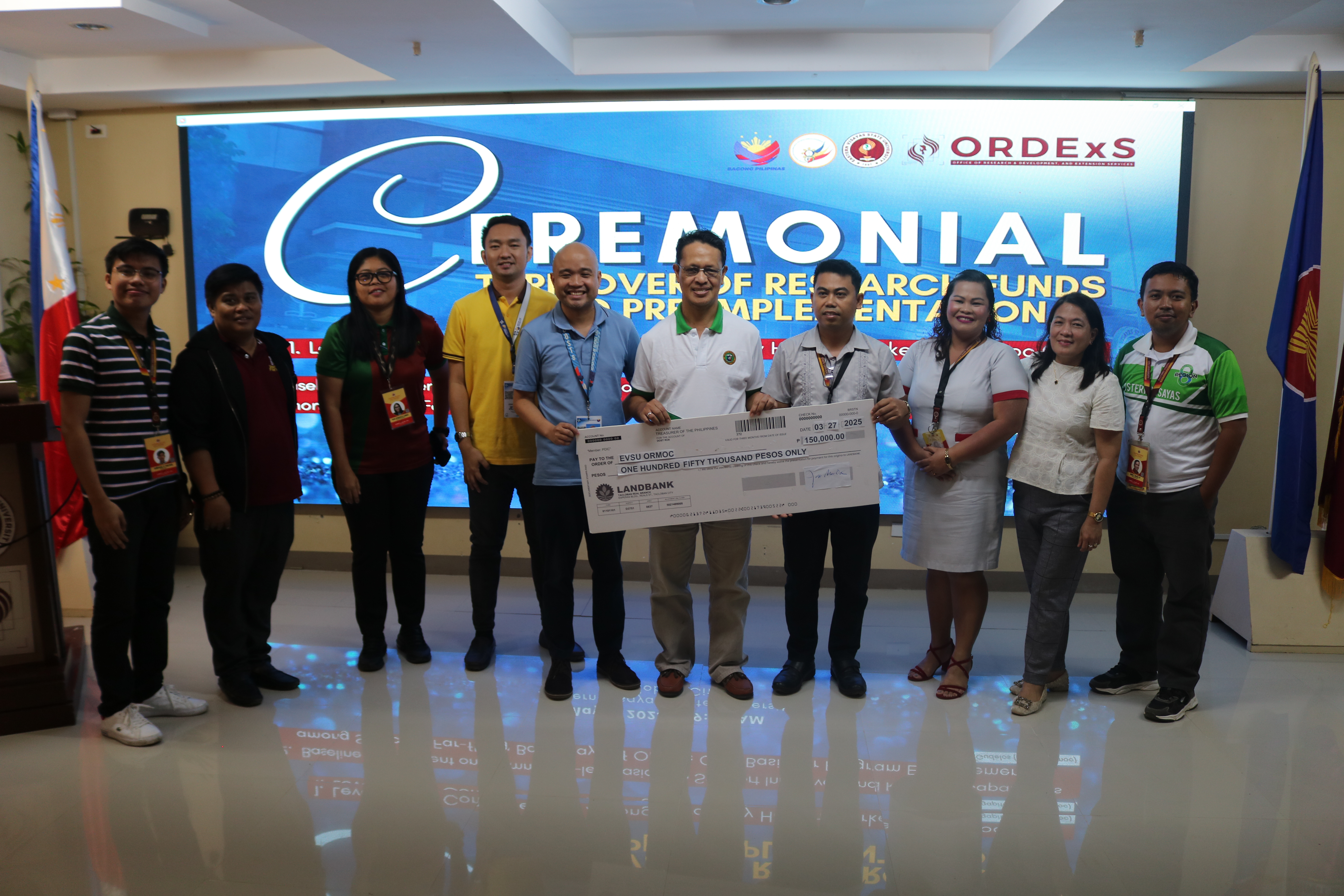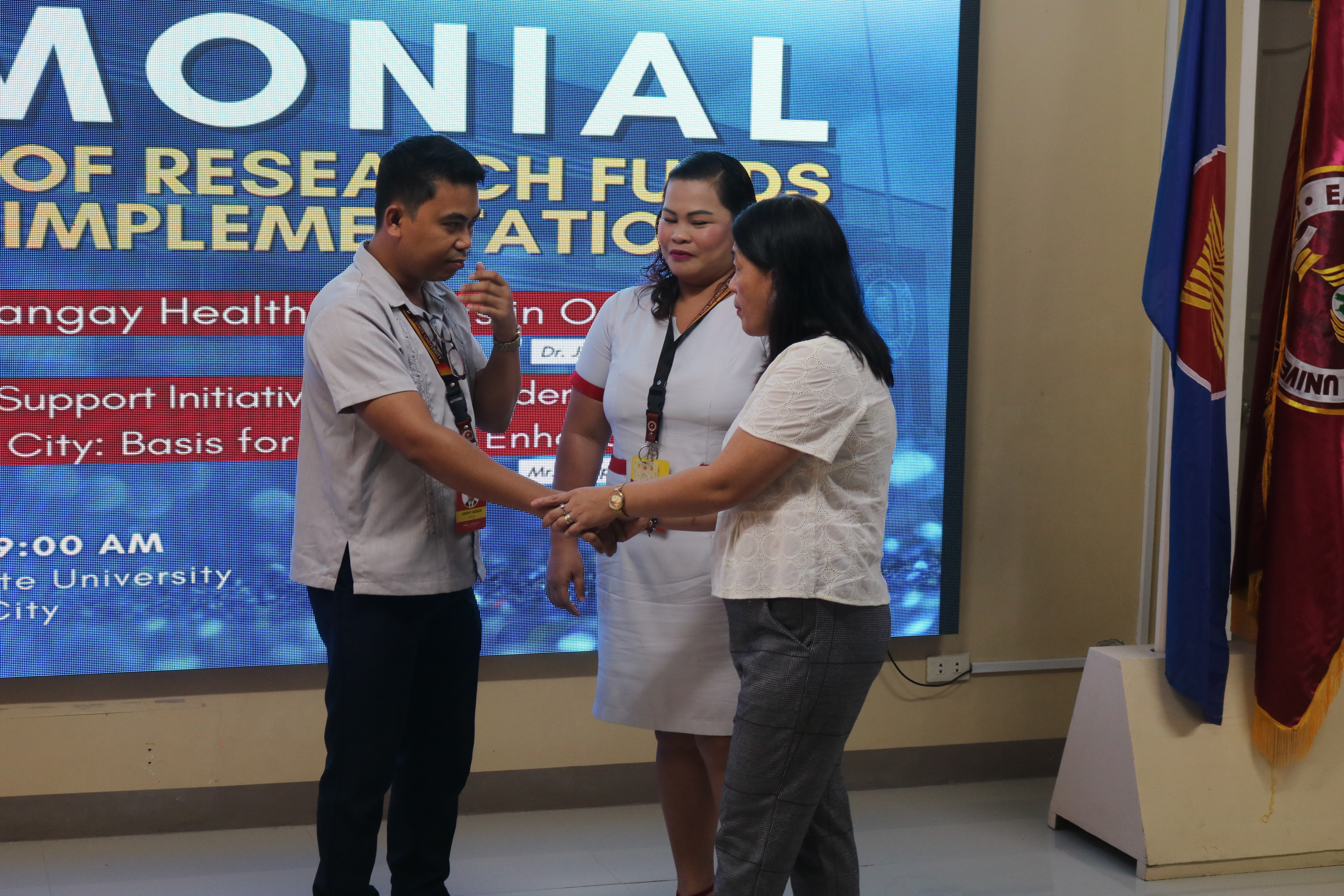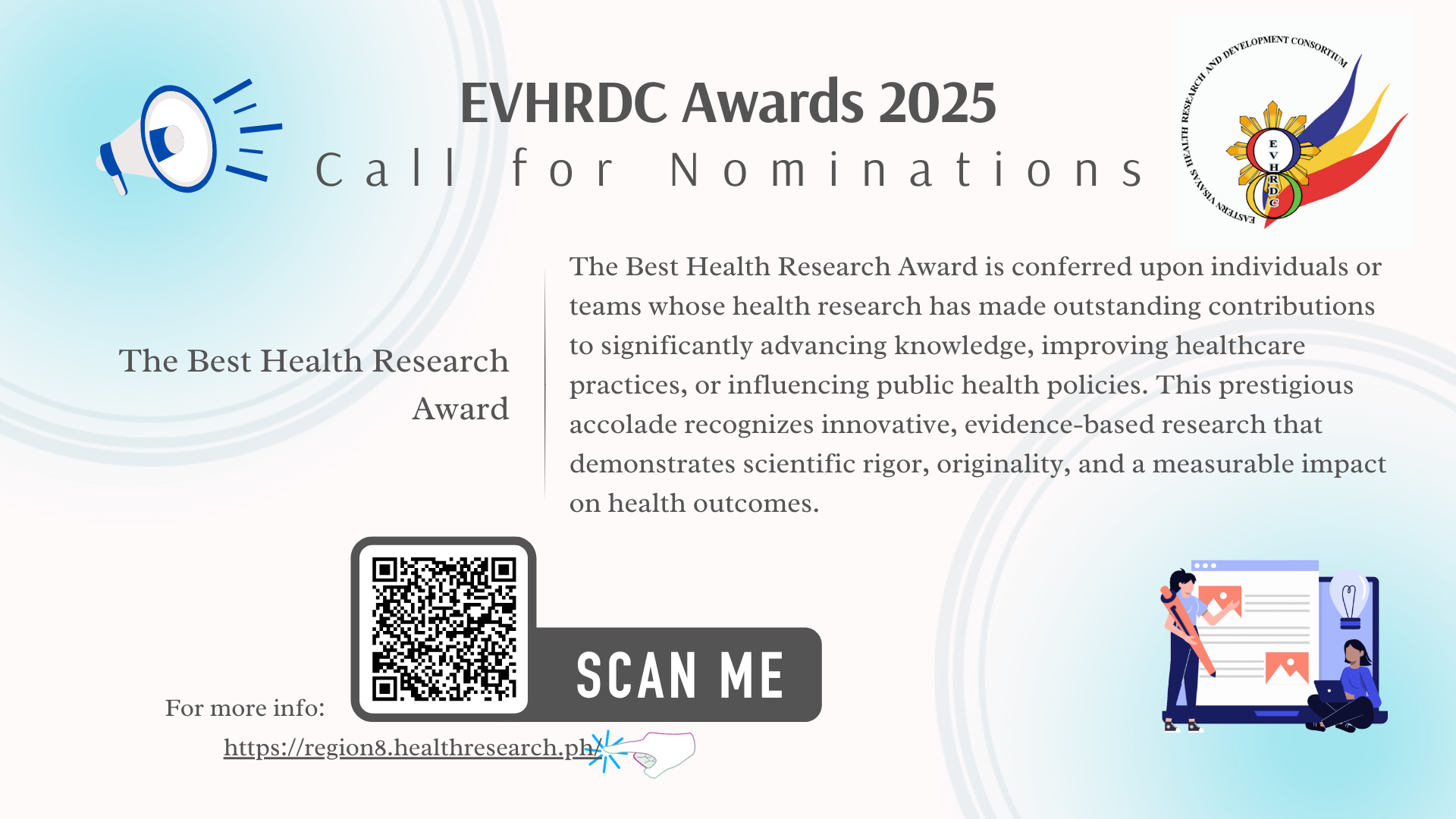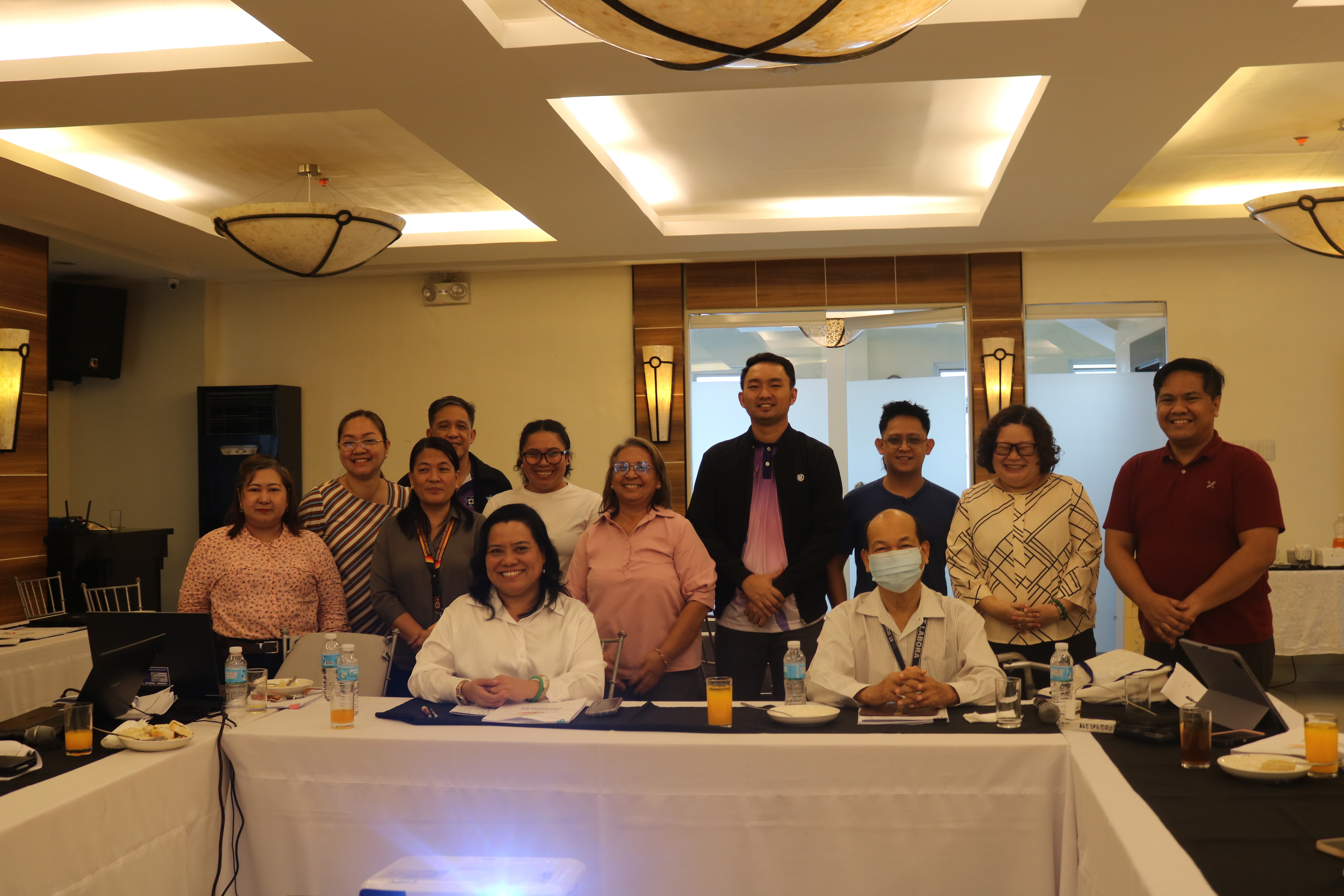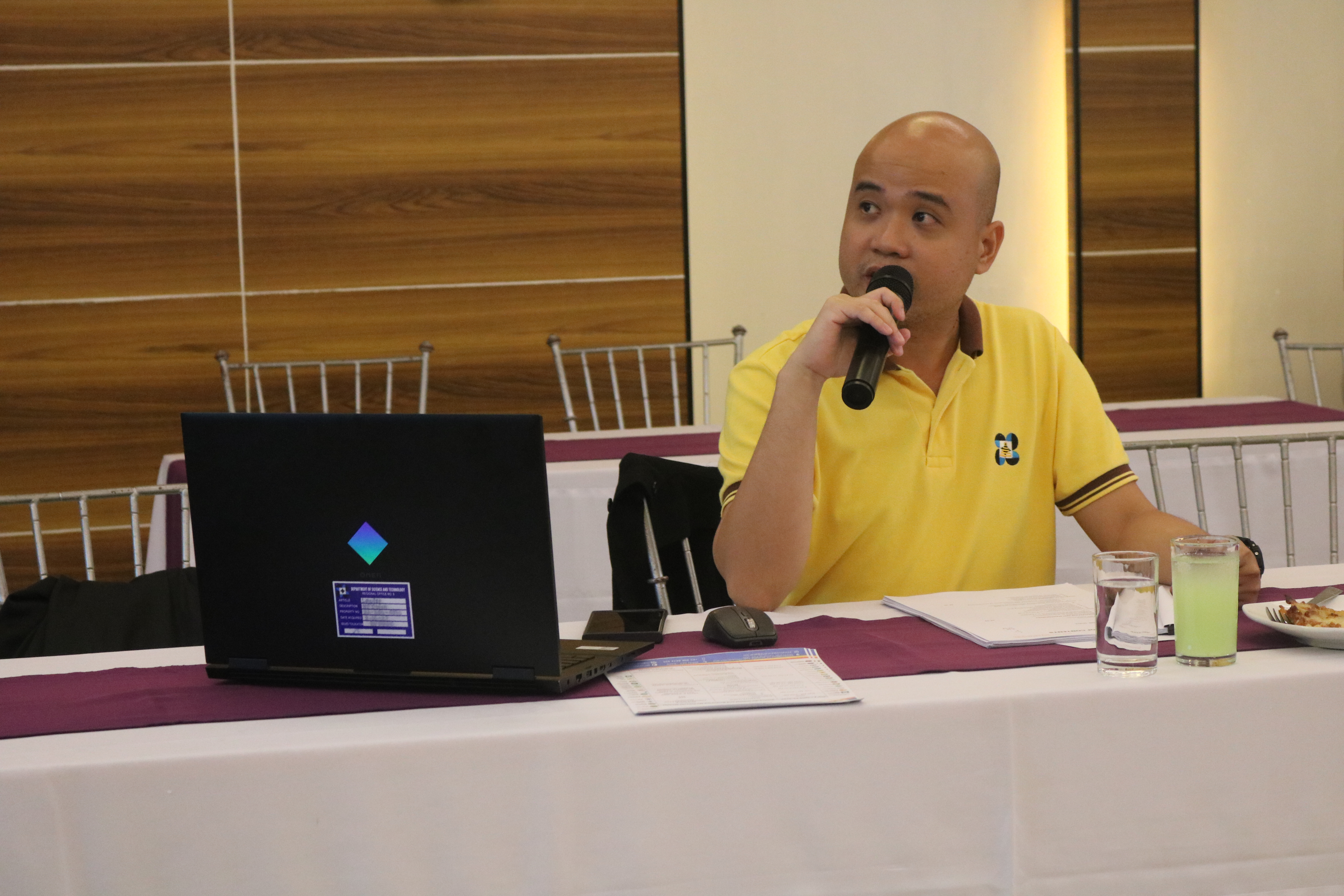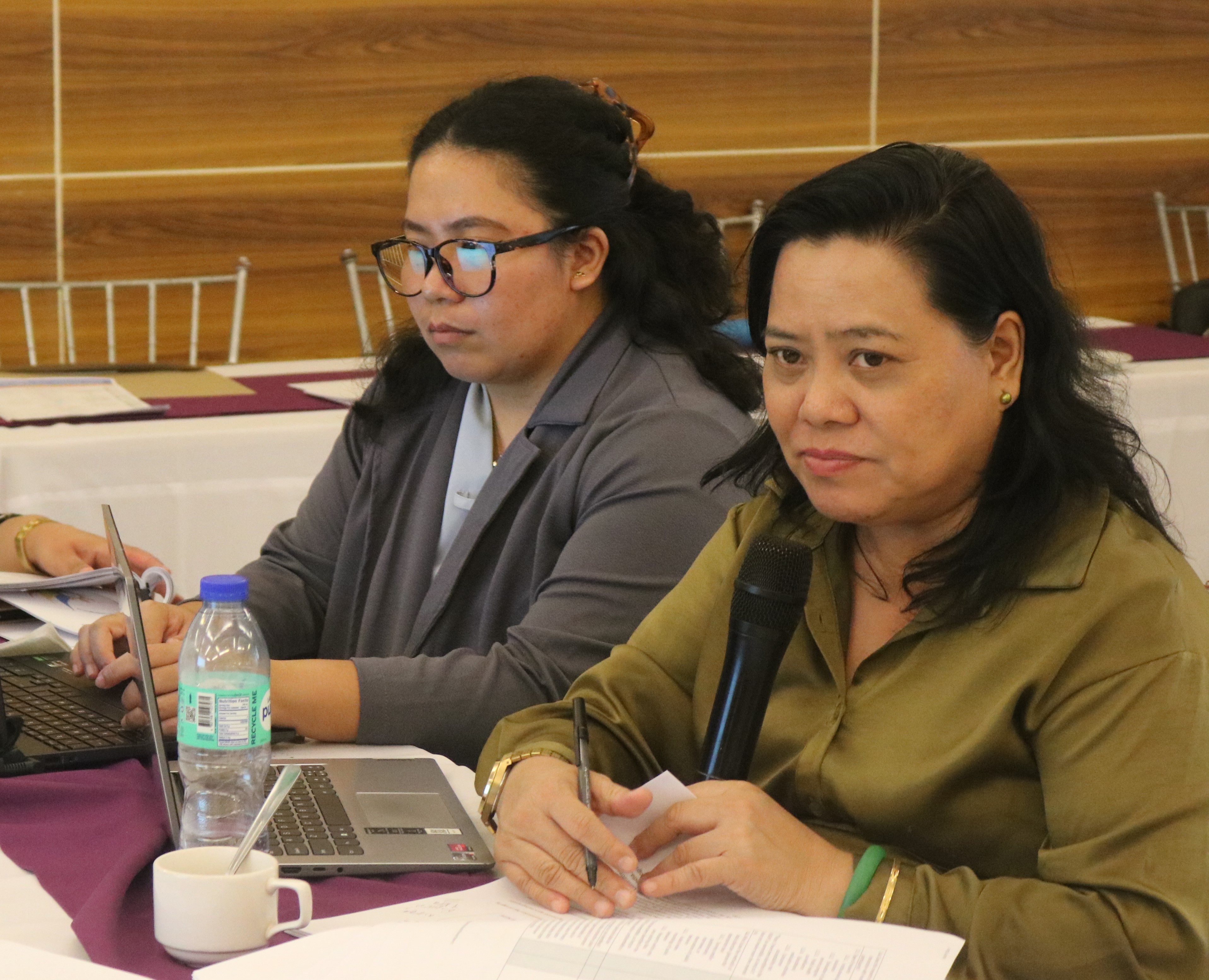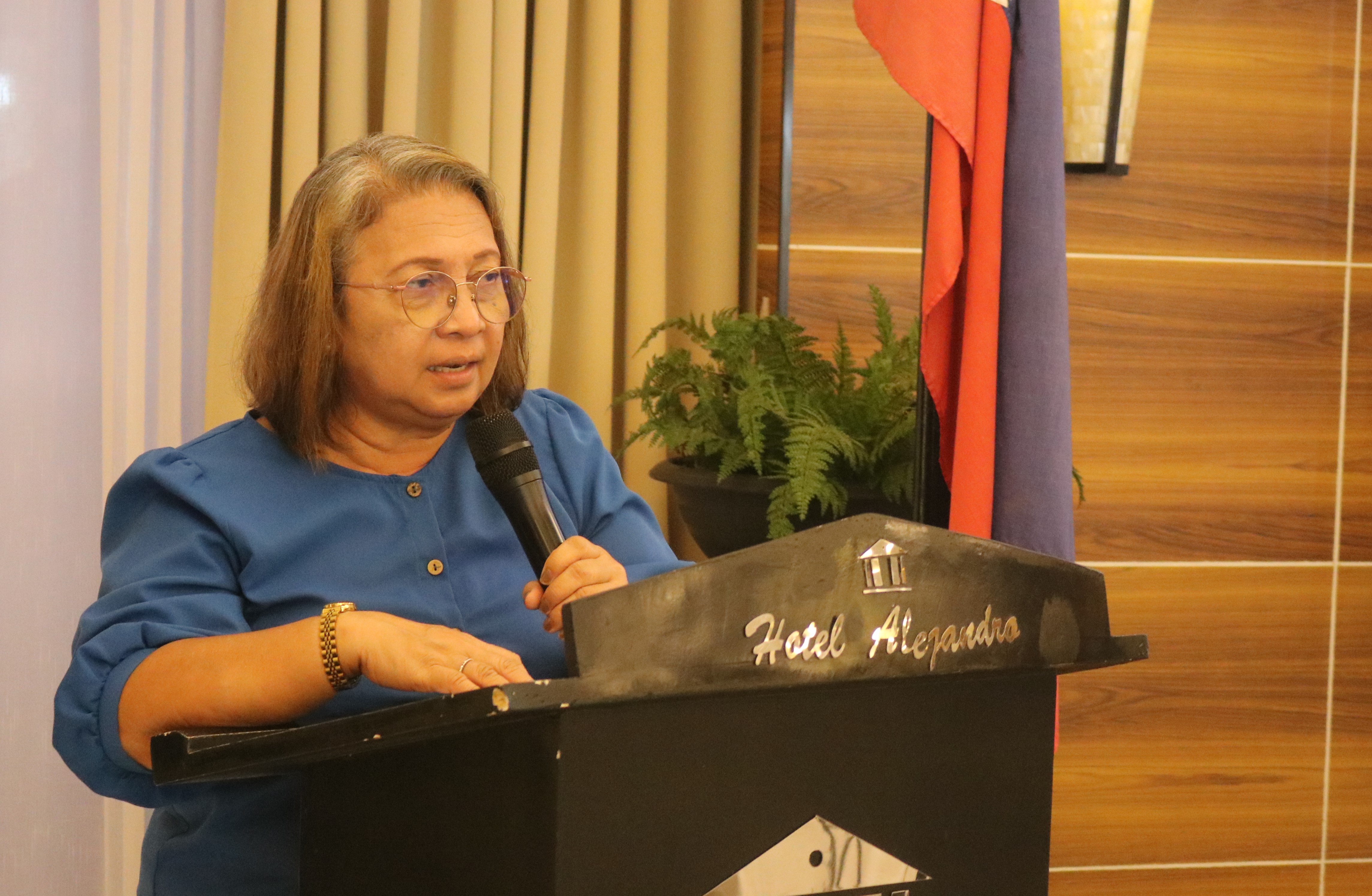Featured Videos
Latest News
- Details
- Written by Jeremy V. Jusay, DOST VIII - EVHRDC
- Category: Latest News
- Hits: 261
September 8, 2025 – The University of the Philippines Manila–National Institutes of Health (UPM-NIH) and the Forum for Ethical Review Committees in Asia and the Western Pacific (FERCAP), in partnership with the Eastern Visayas Health Research and Development Consortium (EVHRDC), successfully concluded the first day of the three-day Online Training Workshop on Responsible Conduct of Research.
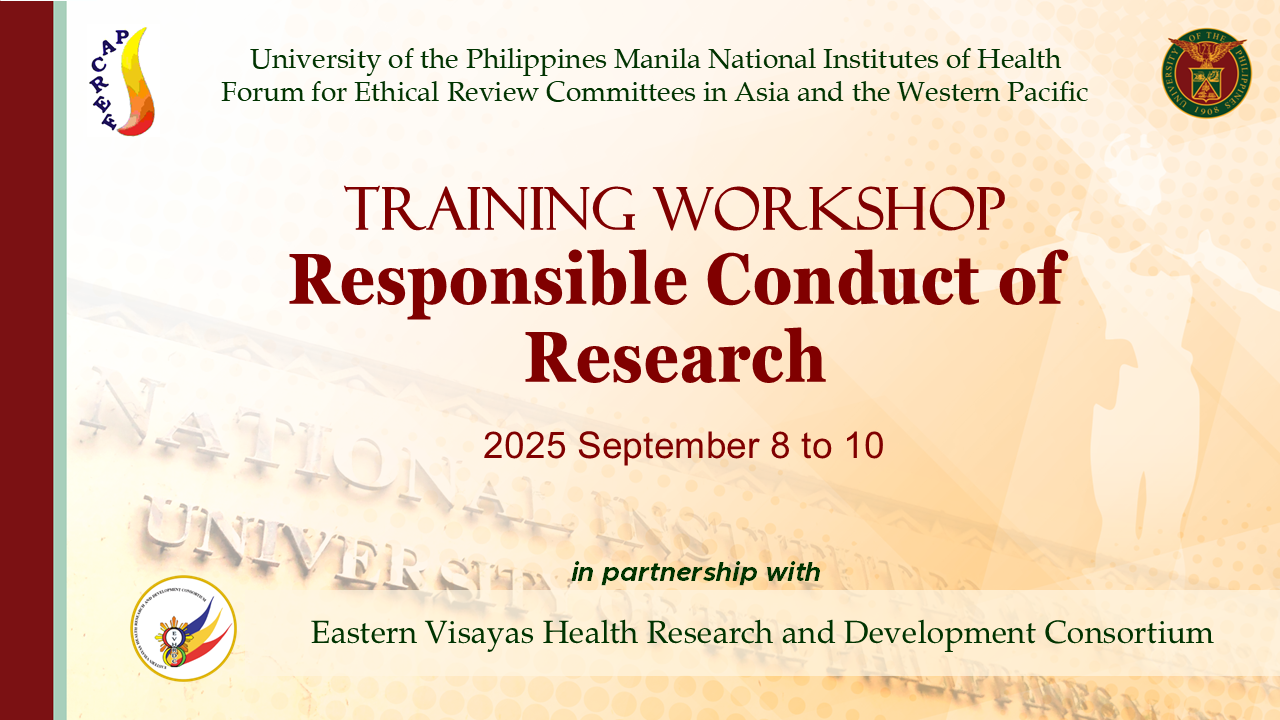
The morning session featured lectures on scientific integrity and good research practice, international and national ethical guidelines, and the roles of researchers, institutions, and advisers. In the afternoon, participants engaged in the workshop proper, which involved critiquing a case study to apply the concepts discussed.
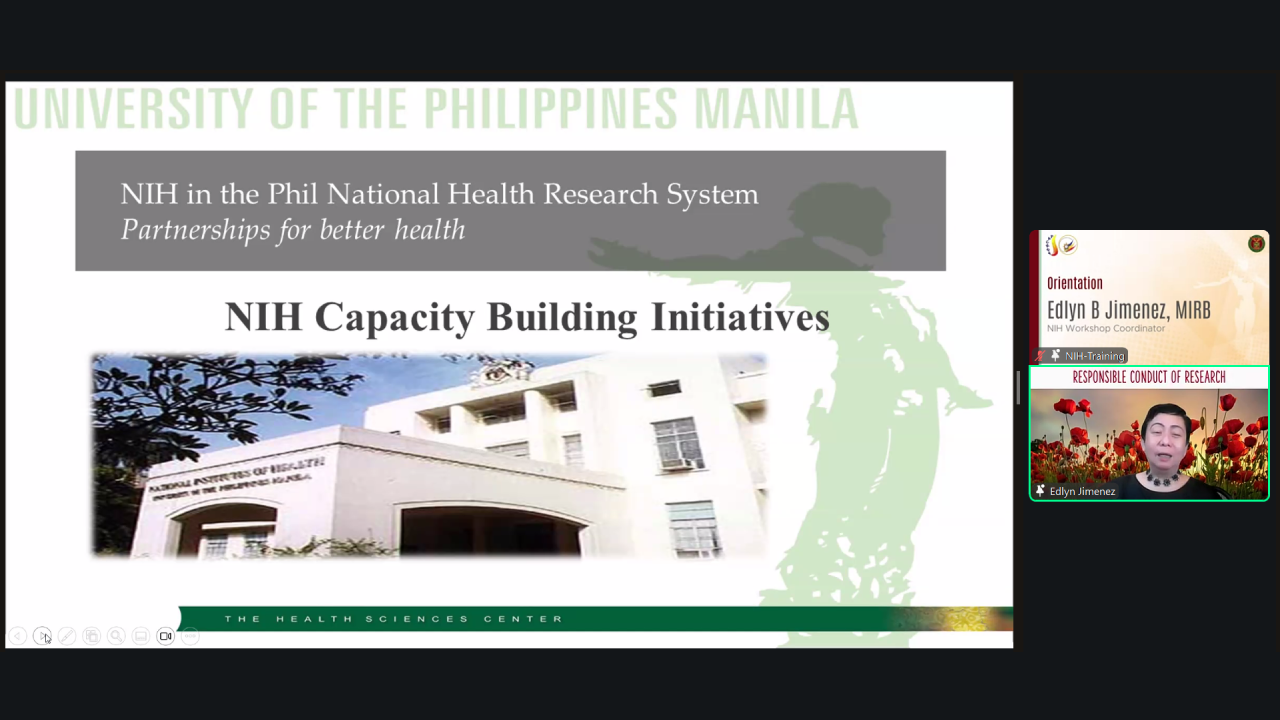
The resource speakers included UPM-NIH Professor and Executive Director Dr. Eva Maria Cutiongco-de la Paz, FERCAP Coordinator Dr. Cristina Torres, UP Manila Research Ethics Board Coordinator Professor Edlyn B. Jimenez, UP Manila Office of Research Integrity Director Dr. Jean Anne B. Toral and Professor 4 of UP College of Medicine Dr. Lia M. Palileo-Villanueva.
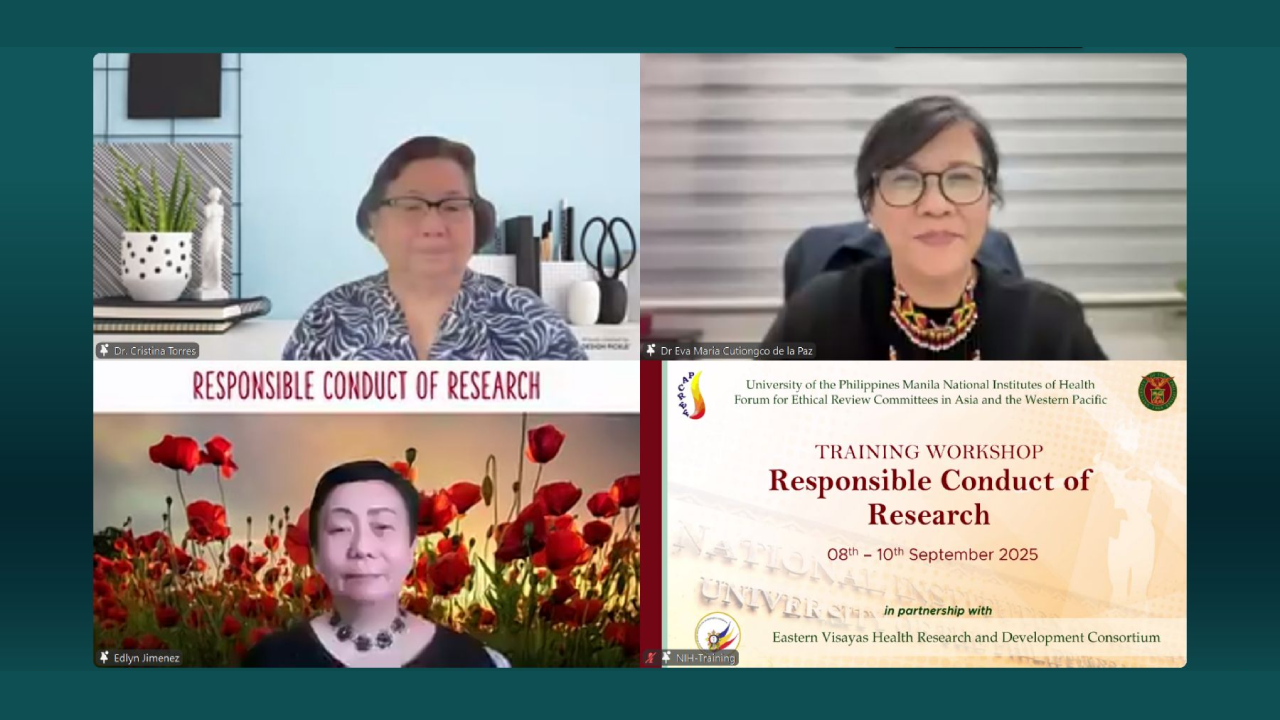
The workshop is designed to enhance participants’ knowledge of good research practices, deepen their awareness of ethical principles and scientific integrity, and clarify the roles of various stakeholders in research involving human participants, with practical applications reinforced through case studies. This activity is being attended by researchers from EVHRDC member institutions, serving not only as a capacity-building initiative but also as preparatory training for Institutional Ethics Review Committees (IERCs) members seeking accreditation from the Philippine Health Research Ethics Board (PHREB). This initiative marks a significant step toward elevating the quality and credibility of health research in Eastern Visayas.
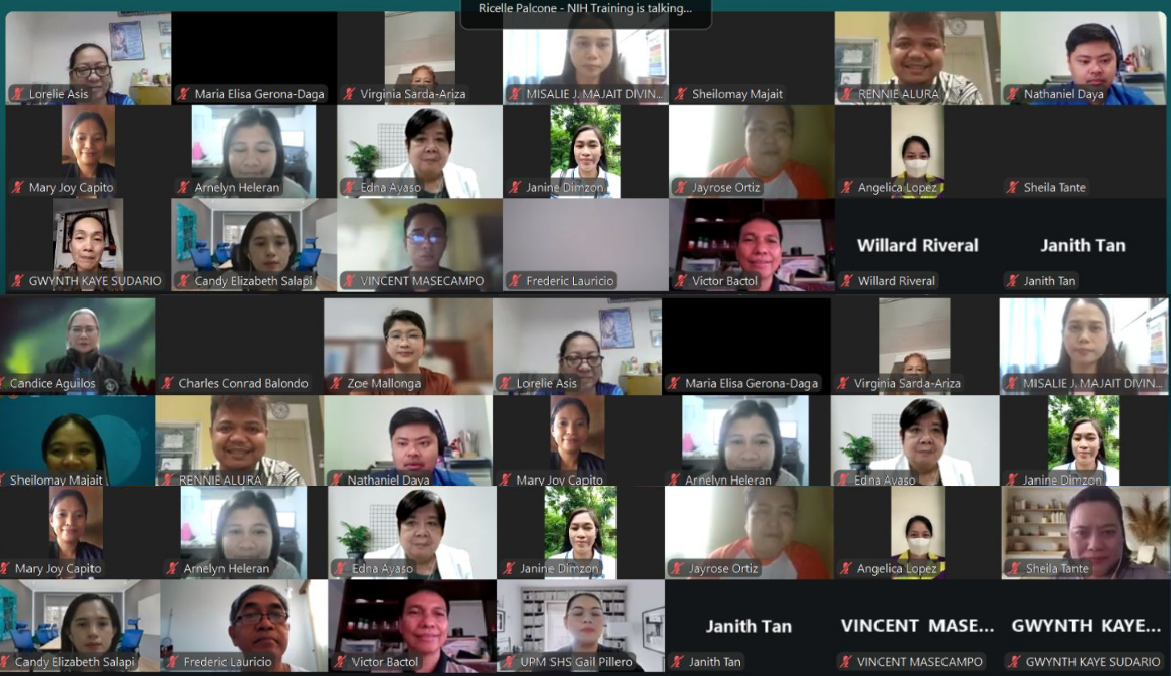
- Details
- Written by Sherrie Ann Cananua-Labid, Research Utilization Committee, Samar State University
- Category: Latest News
- Hits: 301
Legazpi–Daraga, Albay — The Eastern Visayas Health Research and Development Consortium (EVHRDC) took part in the 18th Philippine National Health Research System (PNHRS) Week on 13–15 August 2025, hosted by the Bicol Consortium for Health Research and Development (BCHRD) in partnership with DOST-PCHRD and anchored on the theme “One Health for All: Igniting Transdisciplinary Solutions for a Healthier Philippines.” The three-day national gathering brought together more than 500 researchers, policy makers, and stakeholders.
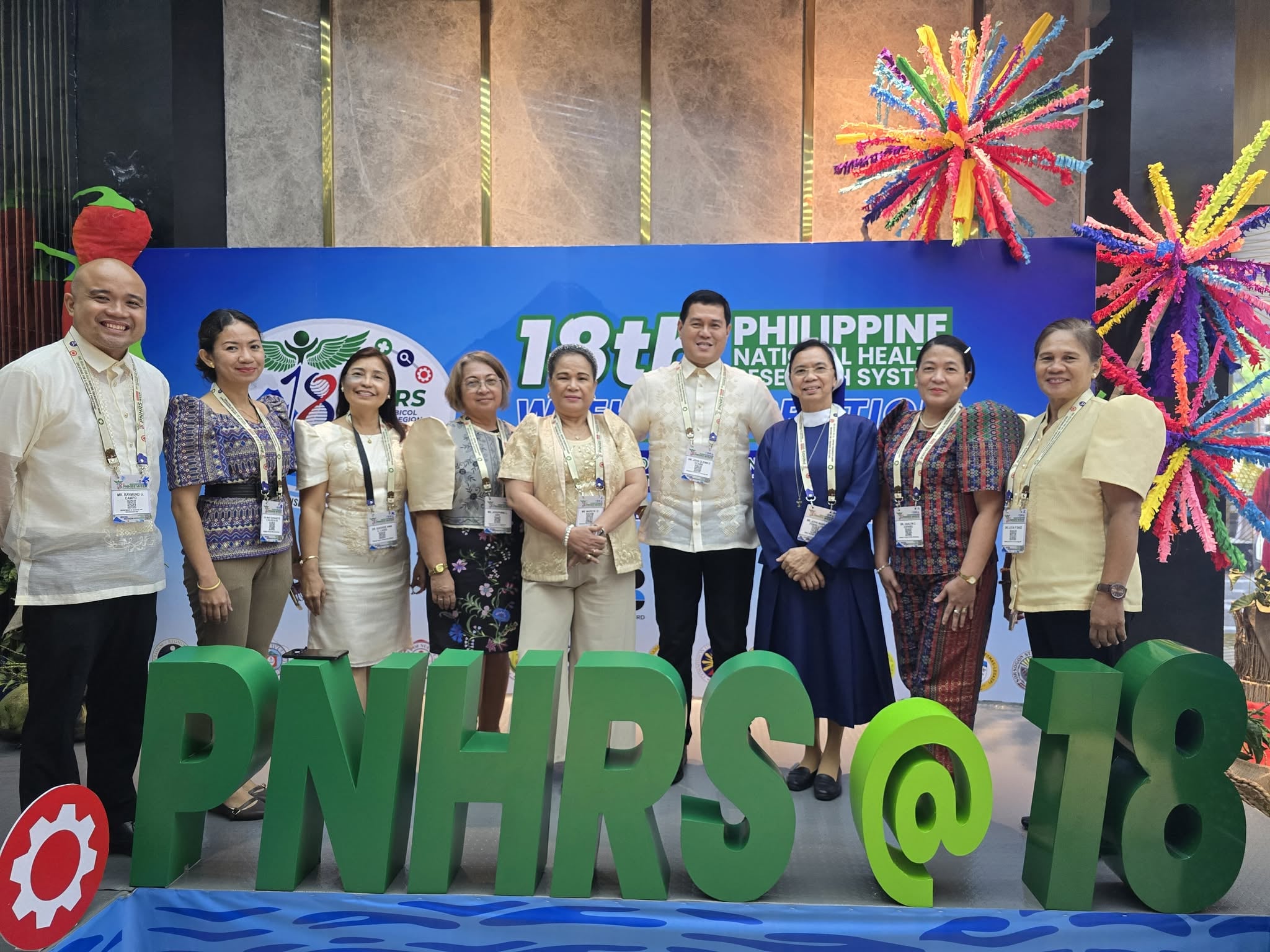
The EVHRDC delegation was led by EXECOM Vice Chair Dir. John Glenn Ocana, ARD Marilyn Radam, Consortium Director Lucia Dauz, Consortium Coordinator Raymond Campo, RUC Chair Sherrie Ann C. Labid, SOMEC Chair Josephine Hipe, CBC Chair Analyn Espano, and RMC Member Sister John Fornillos. Representing the consortium in national research competitions were Dr. Santiago Pena (finalist, 3-Minute Pitch to Policymakers) and Dr. Addie Egloso (participant, Oral Research Presentation).
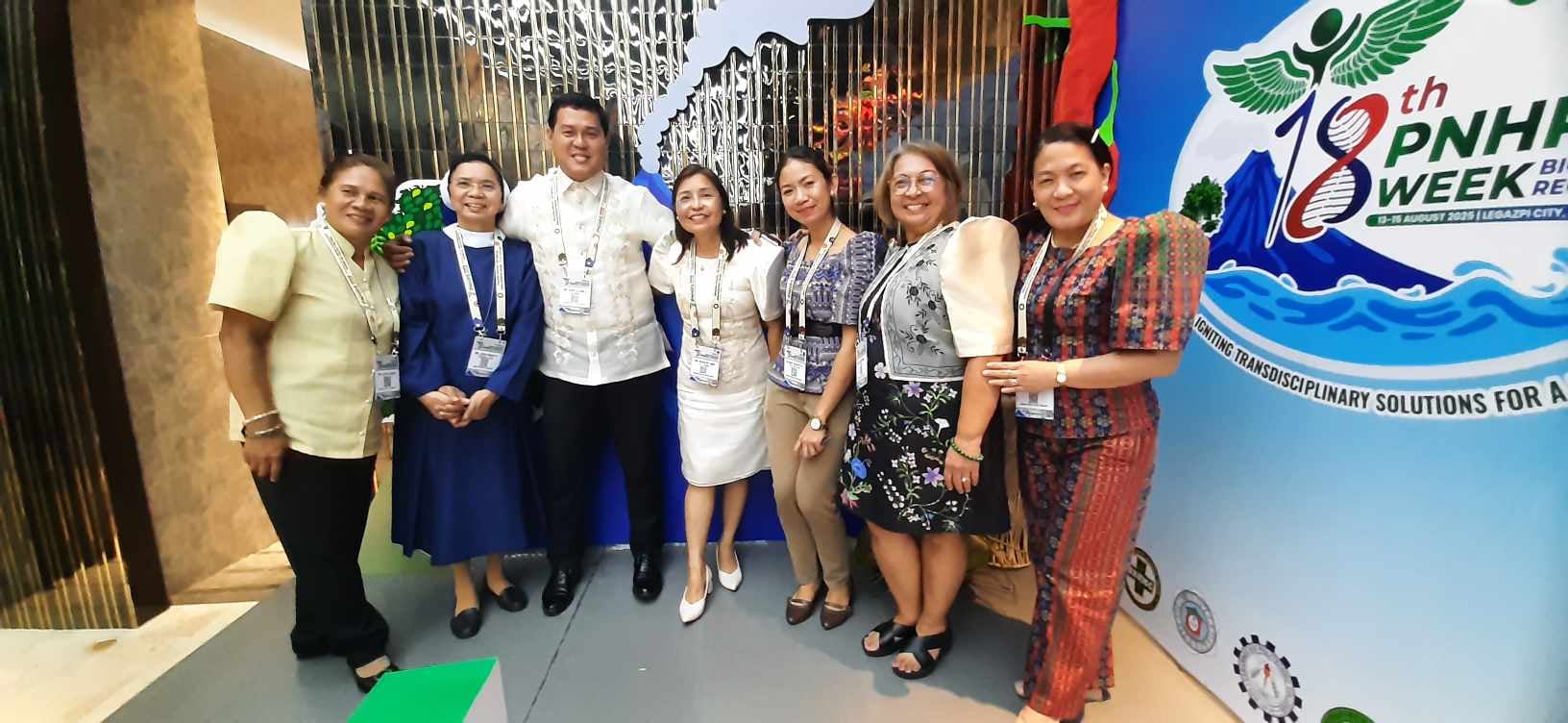
Across the three days, delegates engaged in plenary sessions, policy dialogues, exhibits, committee meetings, and research contests aligned with the National Unified Health Research Agenda. Highlights included the Talakayang HeaRT Beat press conference to open the celebration (Aug. 13), Plenary Session 1 on inter-agency collaboration, a full day of research competitions including the 3-Minute Pitch (Aug. 14), technical working committee meetings, and Plenary Session 2 on innovation, education, and governance in One Health (Aug. 15).
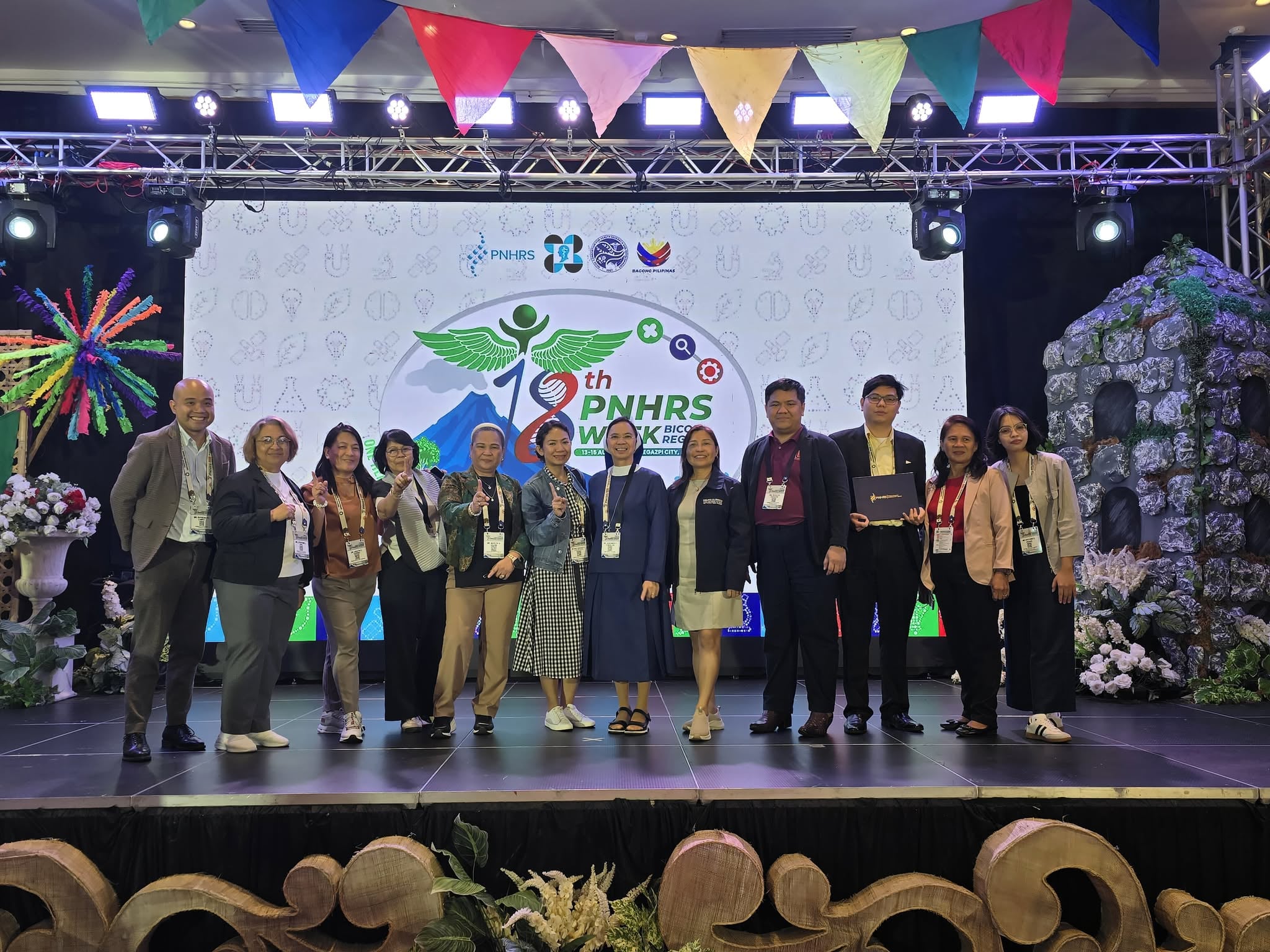
The 3-Minute Pitch to Policymakers finals were held on 14 August 2025 at The Marison Hotel, Legazpi City—an annual PNHRS platform that challenges researchers to distill findings into actionable policy messages. DOST EVHRDC’s participation in both the policy-pitch and oral presentation tracks reflects the consortium’s continued push to translate evidence into programs that address the intertwined drivers of human, animal, and environmental health outcomes—core tenets of the One Health approach emphasized at this year’s PNHRS Week.
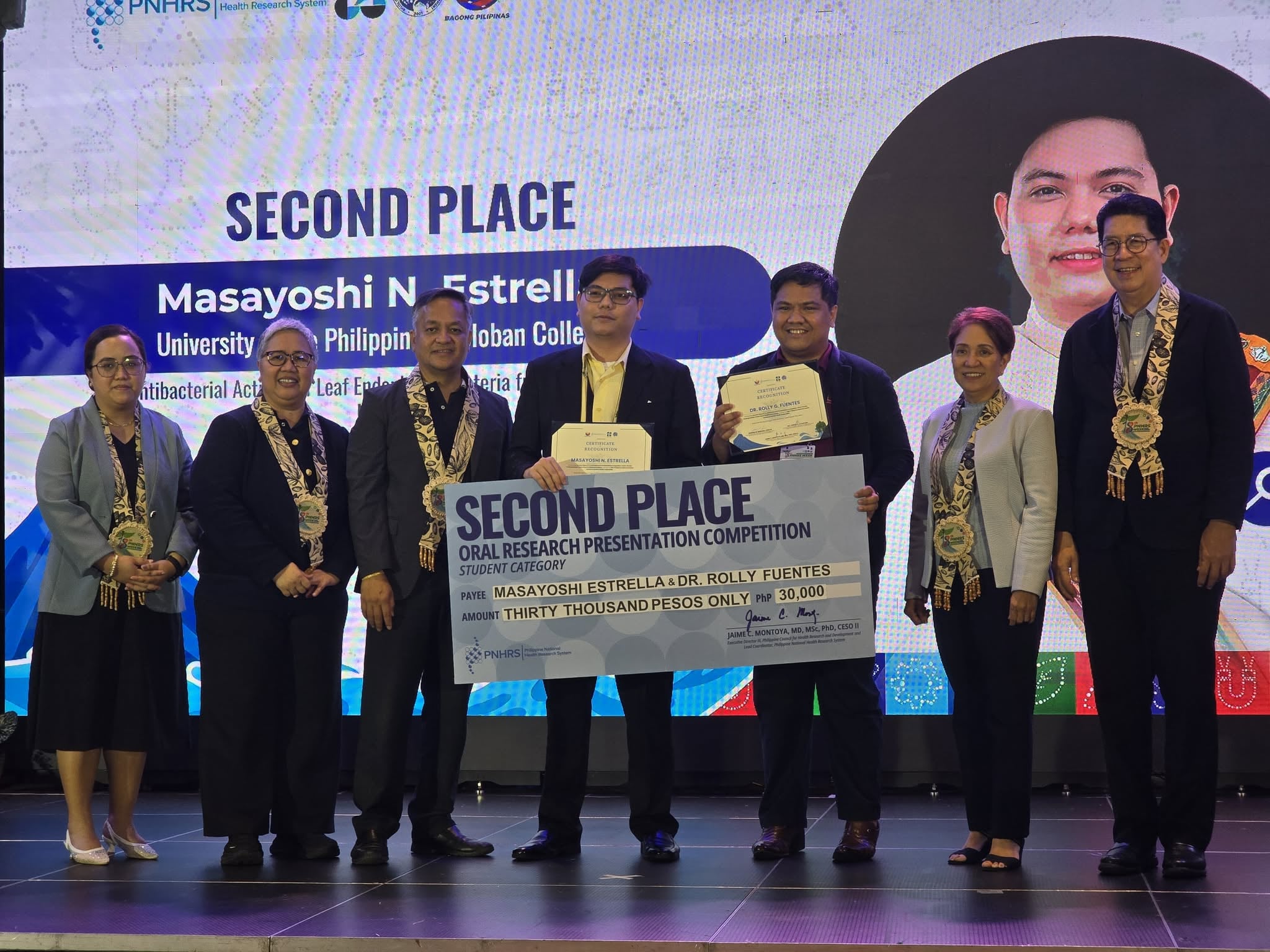
PNHRS Week is celebrated every second week of August pursuant to Presidential Proclamation No. 1309, reaffirming the country’s commitment to a responsive, inclusive, and collaborative national health research system.
- Details
- Written by Jeremy V. Jusay, Heidi Grace M. Superada, DOST VIII - EVHRDC
- Category: Latest News
- Hits: 1343
Tacloban City – The Eastern Visayas Health Research and Development Consortium (EVHRDC) officially turned over research funds and conducted a grant orientation meeting for two newly-approved Participatory Action Research (PAR) projects on May 7, 2025, at the Ordex Studio, Eastern Visayas State University (EVSU) Main Campus.
The approved projects are “Level of ICT Competency among Healthcare Providers in Health Districts of Ormoc City” by Dr. Jereco Jims Agapito and“Extent of Implementation of Basic First Aid and Health Emergency Rescue Initiative to Selected Far-flung Barangays of Ormoc City” by Mr. Joseph T. Gudelos. Both researchers are faculty members from EVSU-Ormoc Campus.
These projects aim to generate data that will support the development of health-related policies by local leaders. By promoting research-based planning and decisions, the projects contribute to EVHRDC’s goal of making health research relevant to the communities involved.
Building on this momentum, EVHRDC invites researchers working on Participatory Action Research (PAR) and Health Policy and Systems Research (HPSR) to submit their proposals for funding consideration. The Call for Proposals is now open and will run until May 16, 2025. This is an opportunity to develop community-driven solutions and help shape evidence-based health policies in the region. [Click here for more details.]
- Details
- Written by Marko Jaise P. Perpiñan, Project Technical Assistant II, DOST VIII
- Category: Latest News
- Hits: 448
The Best Health Research Award is conferred upon individuals or teams whose health research has made outstanding contributions to significantly advancing knowledge, improving healthcare practices, or influencing public health policies. This prestigious accolade recognizes innovative, evidence-based research that demonstrates scientific rigor, originality, and a measurable impact on health outcomes.
Award Categories:
Any health research that has been completed, implemented, and/or published within the last three (3) years. The studies may fall under these two categories:
- Biomedical Research- the research must be engaged in generating or adopting appropriate health technologies that address specific health problems and emphasize the development of diagnostic tools and techniques, biological (e.g. drugs, vaccines, functional foods, etc.), biomedical devices, and ICT-based healthcare technologies.
- Health Services Research- the research must be involved in the organization, administration, operation, utilization, and other aspects of health services delivery systems that address the country’s social, political, cultural, and economic conditions.
Nomination Procedures
- Nominations may be submitted by individuals, academic institutions, research organizations, healthcare facilities, or professional associations.
- Self-nomination of your health research study is permitted and encouraged.
- The nomination package must include:
- A letter from the nominator describing its significance, innovation, and impact of research in the community. (The nomination letter should not exceed 3 pages);
- Current curriculum vitae of the candidate using the format required by the EVHRDC Search Committee;
- Three letters of support from scholars in the candidate’s main or cognate fields are required, describing the impact of the health research study at the regional, national, and international levels. At least two of these letters must come from scholars outside the candidate’s workplace.
- Accomplished EVHRDC Awards 2025 Nomination Form.
- The nominated health research study must be a local study conducted in Region 8. At least one study must involve local respondents or subjects from its locality and must undergo an ethics review to ensure ethical standards and comply with the institutional guidelines. Other studies may include participants or settings from other parts of the country or the world; however, the overall findings must demonstrate relevance to Region VIII.
- Criteria for Judging:
|
Criteria |
% |
|
Research Excellence: Quality, novelty, and impact of health research in the healthcare delivery system |
40% |
|
Innovation and Impact: Contribution to advancements in healthcare, policy changes, and real-world application. |
30% |
|
Community Engagement & Outreach: Involvement in public health awareness, education, and benefiting vulnerable communities. |
20% |
|
Career Achievements & Recognitions: Awards, honors, keynote speaker invitations, and membership in prestigious organizations. |
10% |
|
Total |
100% |
Awards and Recognition
- Cash 1st Place Php10,000.00
Plaque/Certificate
Award for Institution – Certificate
- Two Runners-up
2nd Place Plaque/Certificate
3rd Place Plaque/Certificate
Award for Institution - Certificate
How to Submit an Entry
Submit the nomination package in person, via courier or email on or before June 30, 2025. Please provide documentary evidence or any supporting documents to support your entry (These may include publications, reports, certificates, and photographs)
- A letter addressed to:
EXUPERIA B. SABALBERINO, MD, MPH, CESe
Regional Director, DOH EV-CHD
Chairperson, EVHRDC Executive Committee
- In person or courier: EVHRDC Secretariat, DOST Regional Office No. 08, Government
Center, Candahug, Palo, Leyte
- Email: send in PDF format to This email address is being protected from spambots. You need JavaScript enabled to view it. with the subject: Best Health Research Award 2025
Timetable
|
Activity |
Timeline |
|
Call for Nomination |
May 5, 2025 |
|
Deadline for Submission of Nominations |
June 30, 2025 |
|
Selection Process |
July-August 2025 |
|
Awarding of Winners |
2025 Regional Health Research Symposium (October 2025) |
You may download the Forms here:
Best Health Research Award 2025 EVHRDC Awards Nomination Form
- Details
- Written by Geselle Frances P. Zeta, NEDA 8, Research Utilization Committee
- Category: Latest News
- Hits: 686
The Eastern Visayas Health Research Consortium (EVHRDC) held a two-day workshop on April 29–30, 2025, at Hotel Alejandro in Tacloban City to review and update its Manual of Operations.
Organized by the EVHRDC-Structure, Organization, Monitoring and Evaluation Committee (SOMEC), the workshop aimed to align the consortium’s operational guidelines with evolving research policies, current practices, and organizational needs.
Participants included representatives from the Department of Science and Technology VIII, Department of Health VIII, Department of Economy, Planning, and Development (formerly NEDA) VIII, the Philippine Institute of Traditional and Alternative Health Care, Eastern Visayas State University, Leyte Normal University, and the University of the Philippines Tacloban College.
The workshop was facilitated by Dr. Shiela N. Tante of the Eastern Visayas Medical Center and featured a structured review of the manual’s provisions. Discussions focused on clarifying the roles and functions of the Executive Committee, technical committees, and the Secretariat to promote greater operational efficiency and accountability.
SOMEC Chairperson Josephine I. Hipe emphasized the importance of the activity, stating, “Updating our Manual of Operations will strengthen coordination, enhance accountability, and maximize the impact of EVHRDC’s research initiatives.”
The revised draft of the Manual of Operations will submitted to the EVHRDC General Assembly for review and approval, with finalizations expected by end of 2025.
Established in 1983 as the Regional Health Research and Development Consortia 8, EVHRDC is a collaborative network of government agencies, academic institutions, and other organizations committed to advancing health research and development in the region. The consortium works to identify and address priority health issues, foster research collaboration, and ensure that research findings contribute to public health improvement.

